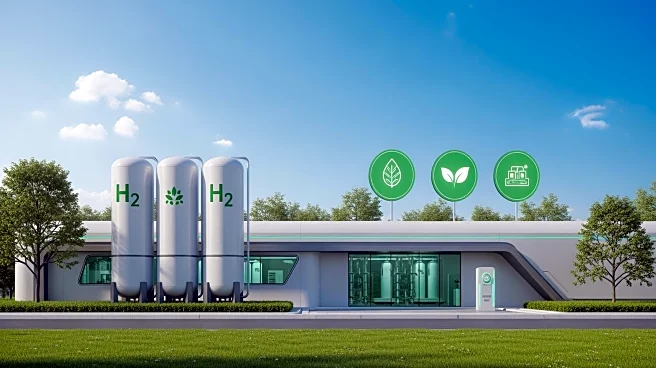What's Happening?
IFF has inaugurated a green hydrogen production facility at its Scent R&D and manufacturing plant in Benicarló, Spain. This facility marks a significant shift in the fragrance industry, utilizing renewable
electricity for hydrogenation reactions essential to fragrance ingredient production. The initiative is part of a 10-year agreement with Iberdrola, a major renewable energy producer, and aims to produce 100 tons of clean hydrogen annually. This move is a core part of IFF's sustainability goals, which include reducing operational emissions and achieving net zero emissions by 2040.
Why It's Important?
The launch of the green hydrogen facility by IFF represents a major advancement in sustainable manufacturing within the fragrance industry. By transitioning from traditional 'gray hydrogen' methods to renewable energy sources, IFF is setting a precedent for environmental responsibility. This initiative not only supports IFF's sustainability targets but also aids its global customers in achieving their decarbonization goals. The facility's ability to eliminate 2,000 tons of carbon dioxide emissions annually underscores its potential impact on reducing the industry's carbon footprint.
What's Next?
IFF plans to use the Benicarló facility as a model for innovation across its global manufacturing network. The company is committed to expanding its green hydrogen production capabilities to further reduce emissions. Additionally, IFF's recent sustainability initiatives, such as the biodegradable scent delivery system ENVIROCAP, indicate ongoing efforts to enhance environmental practices. The success of this facility could influence other fragrance manufacturers to adopt similar sustainable practices.
Beyond the Headlines
The shift to green hydrogen production at IFF's facility highlights broader implications for the fragrance industry, including ethical and environmental considerations. As consumers increasingly demand sustainable products, companies like IFF are responding by integrating eco-friendly practices into their operations. This development may encourage other industries to explore renewable energy solutions, contributing to global efforts to combat climate change.








